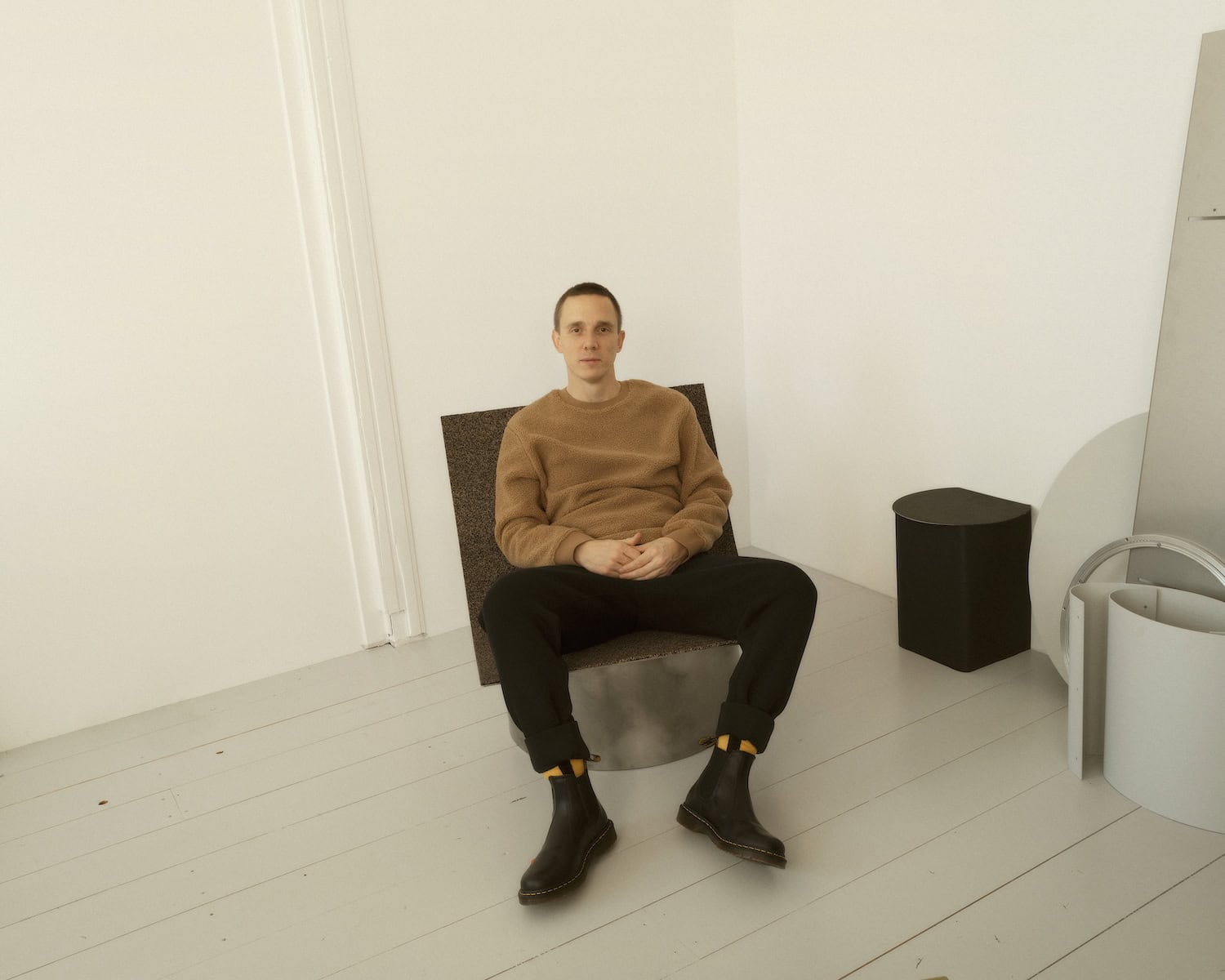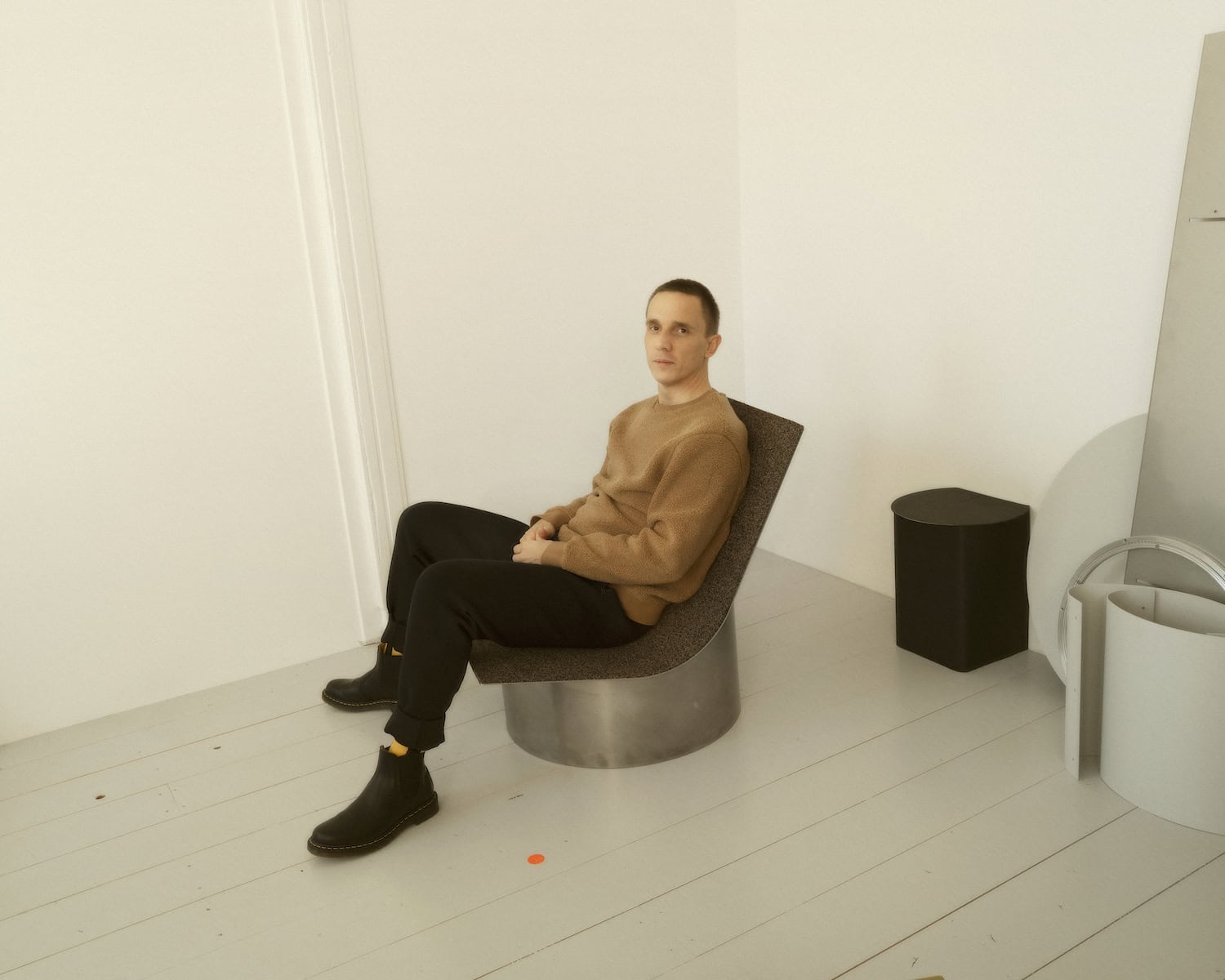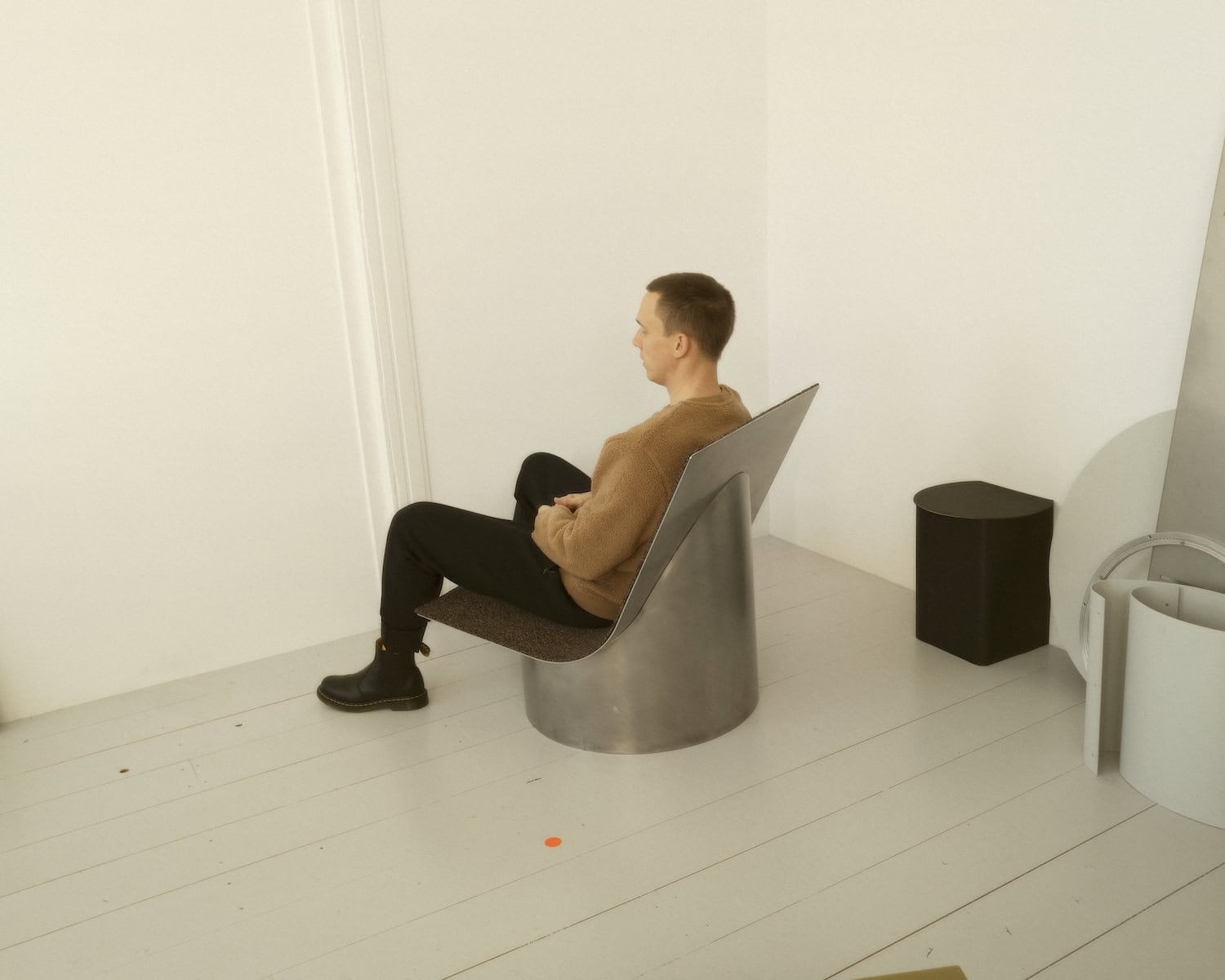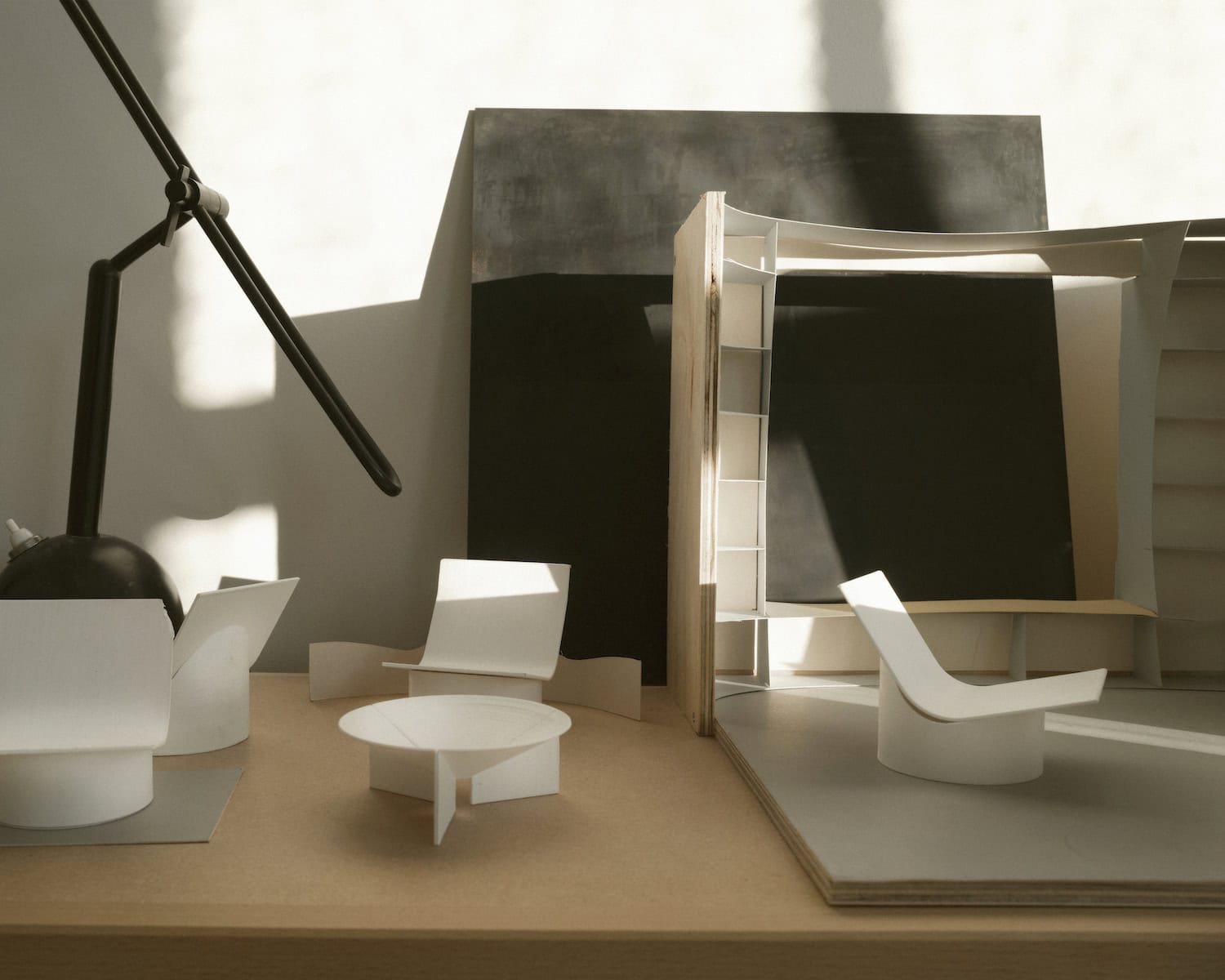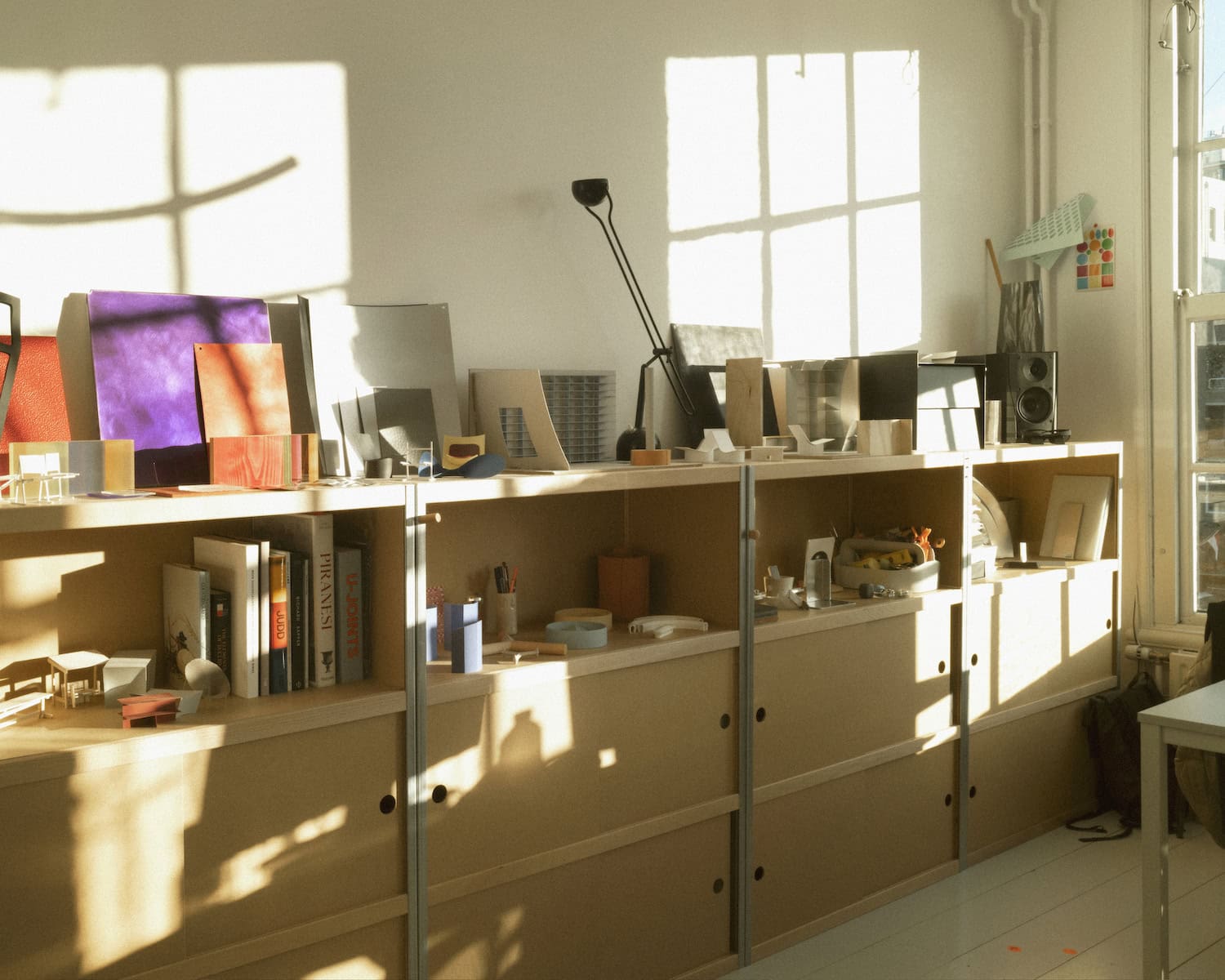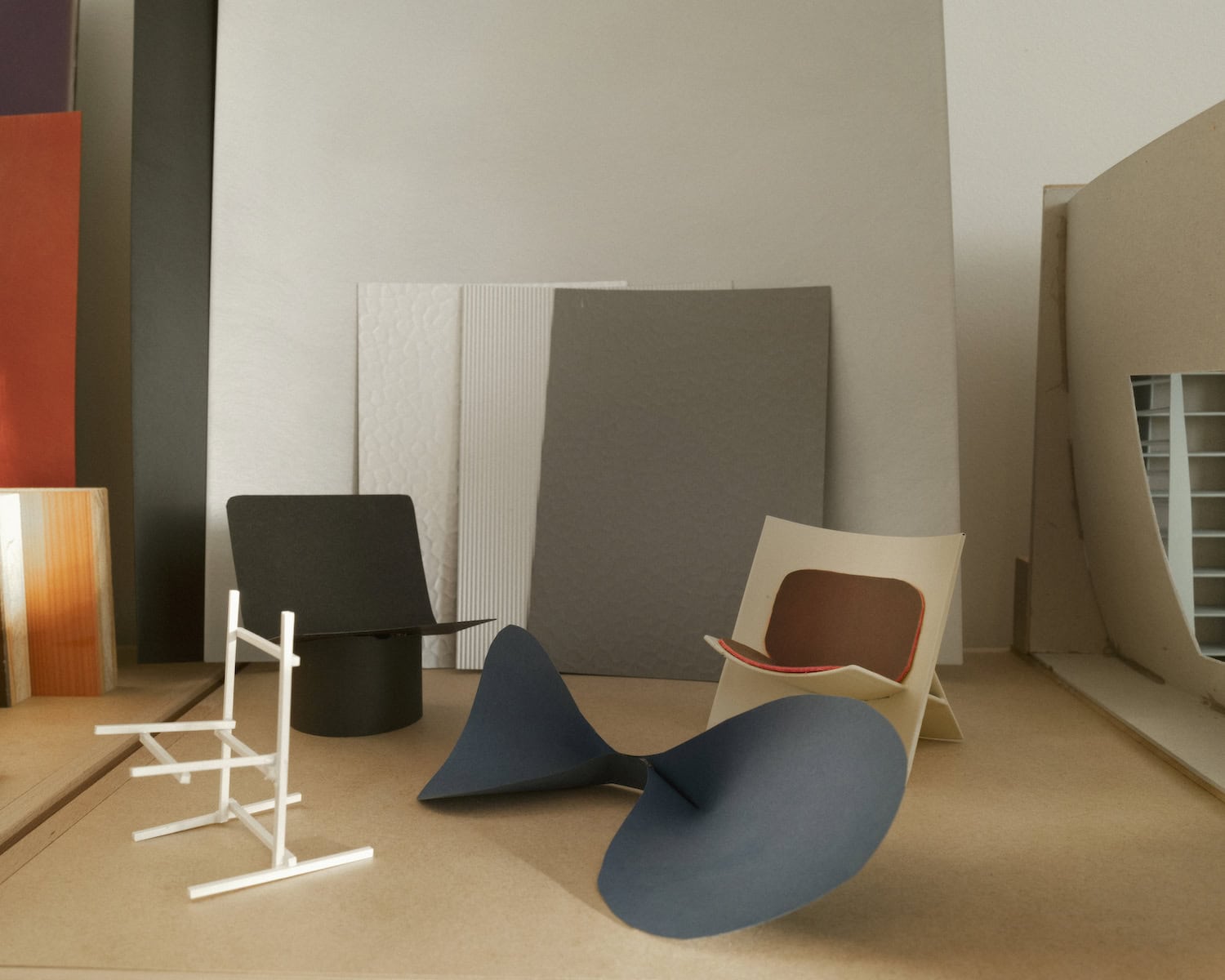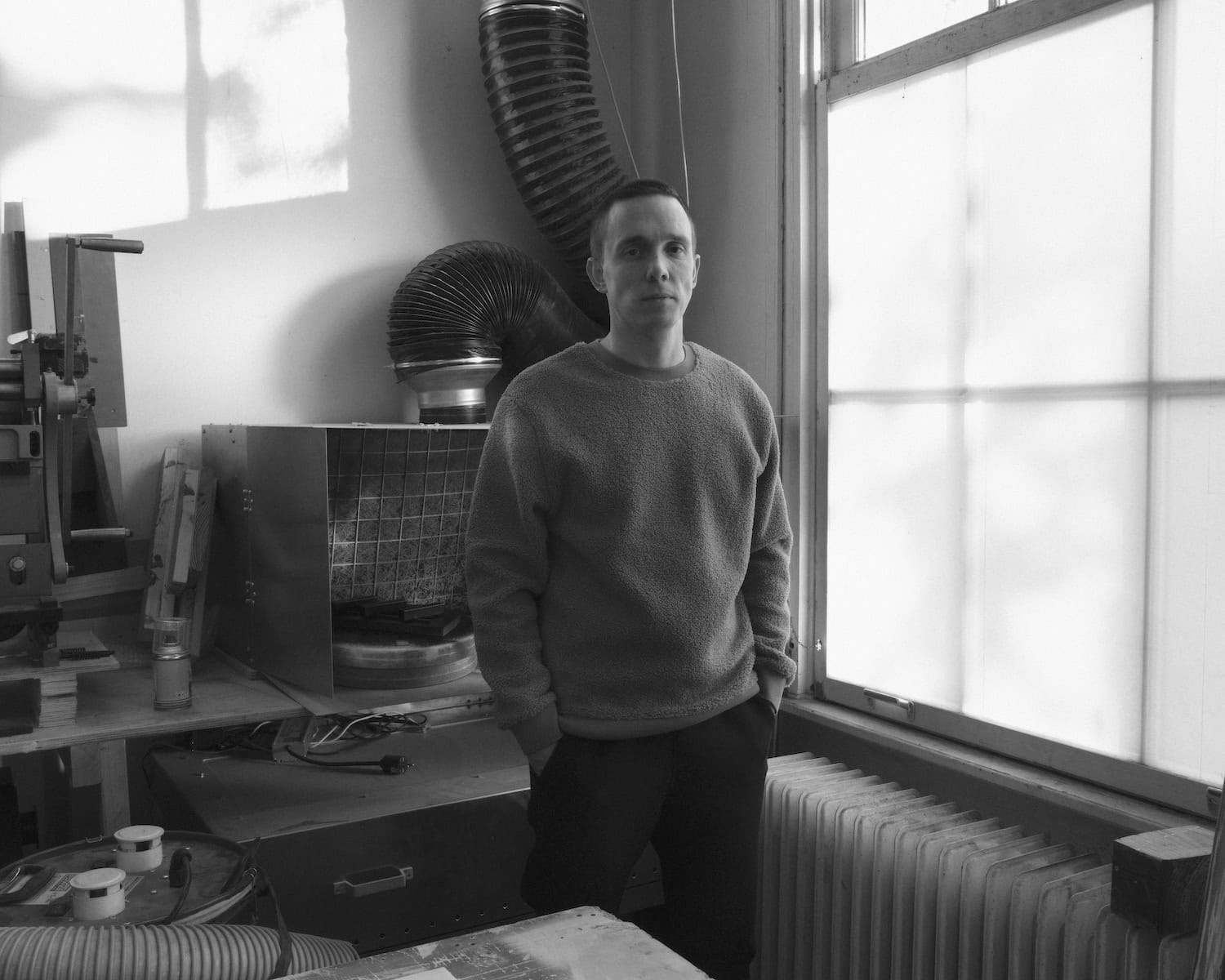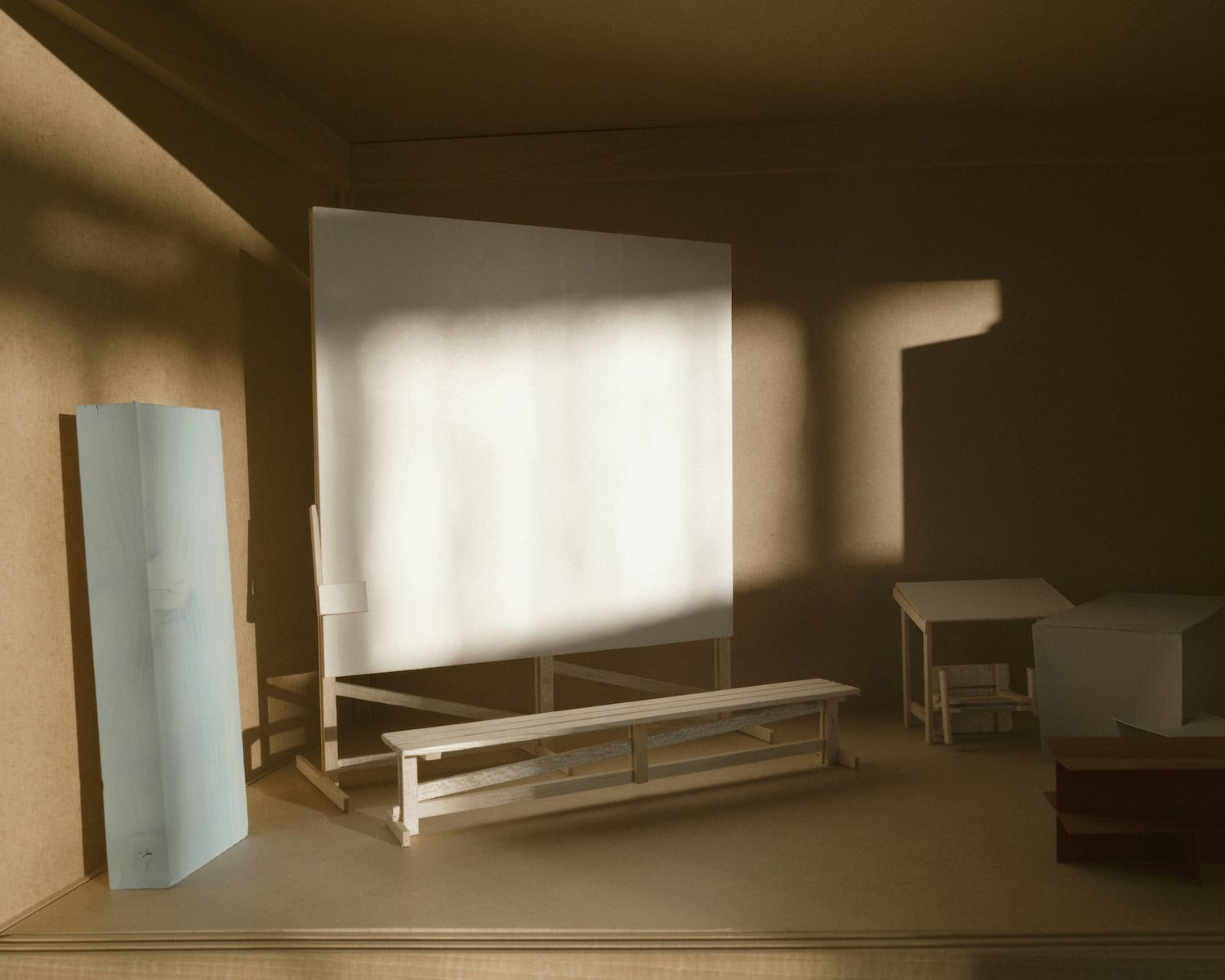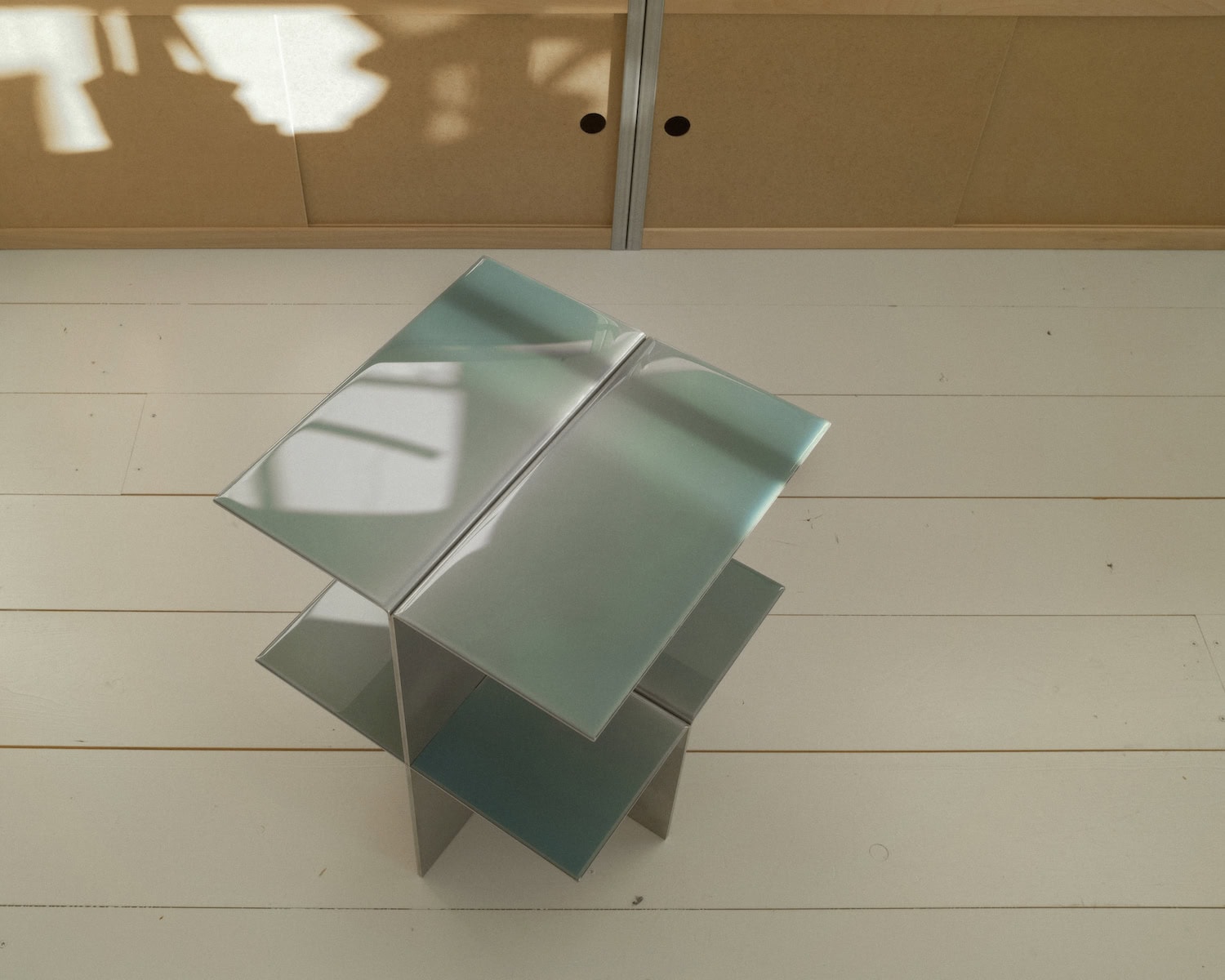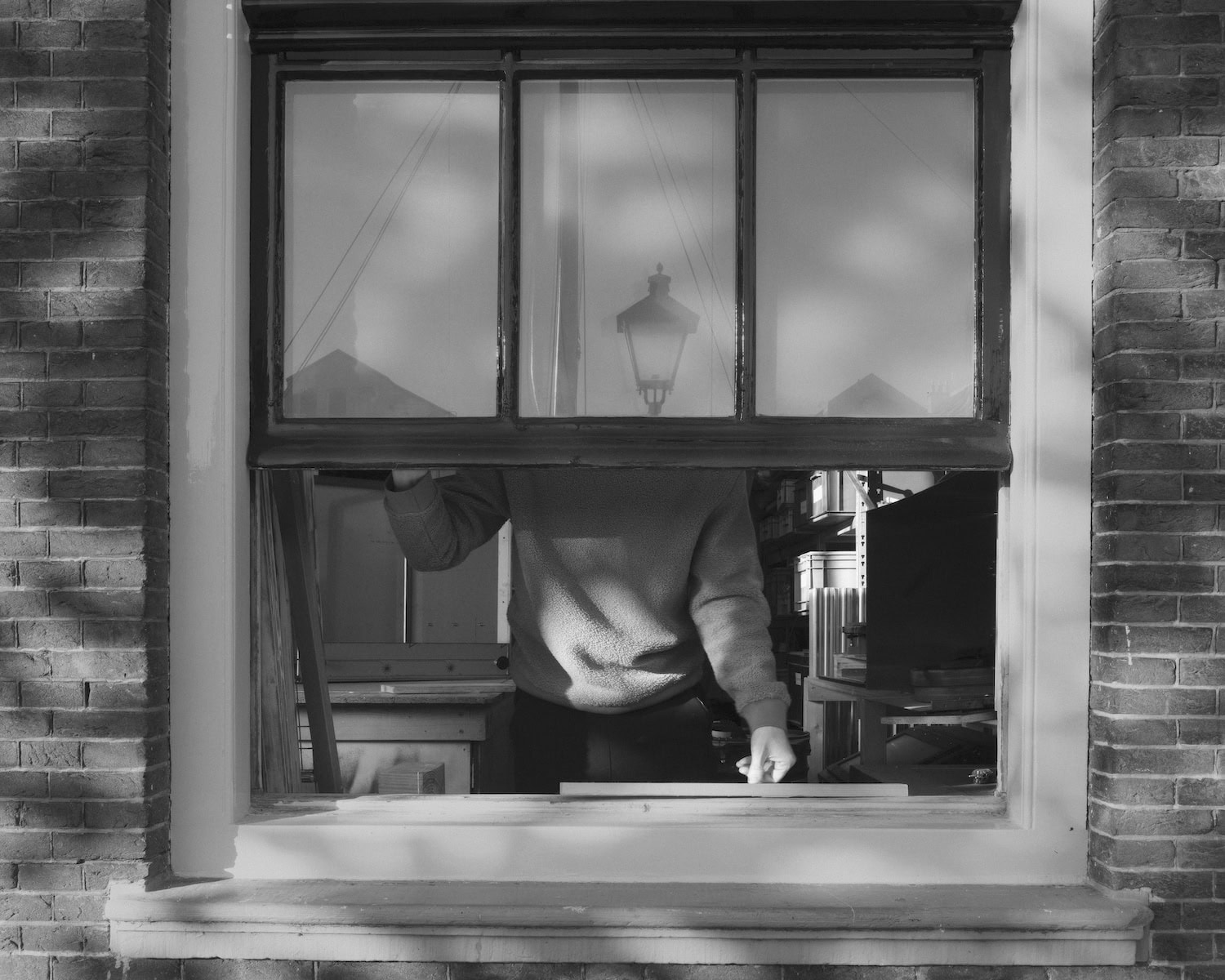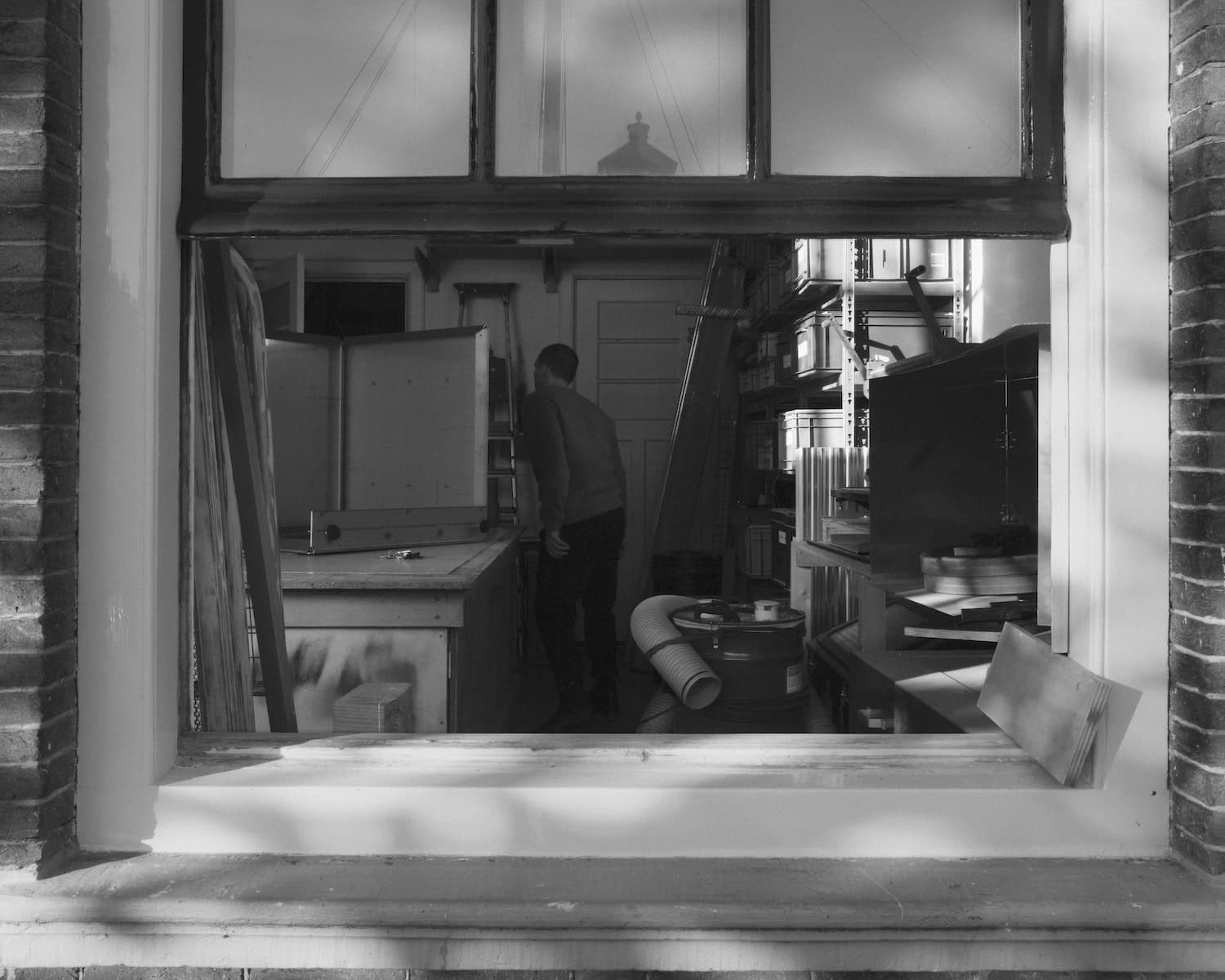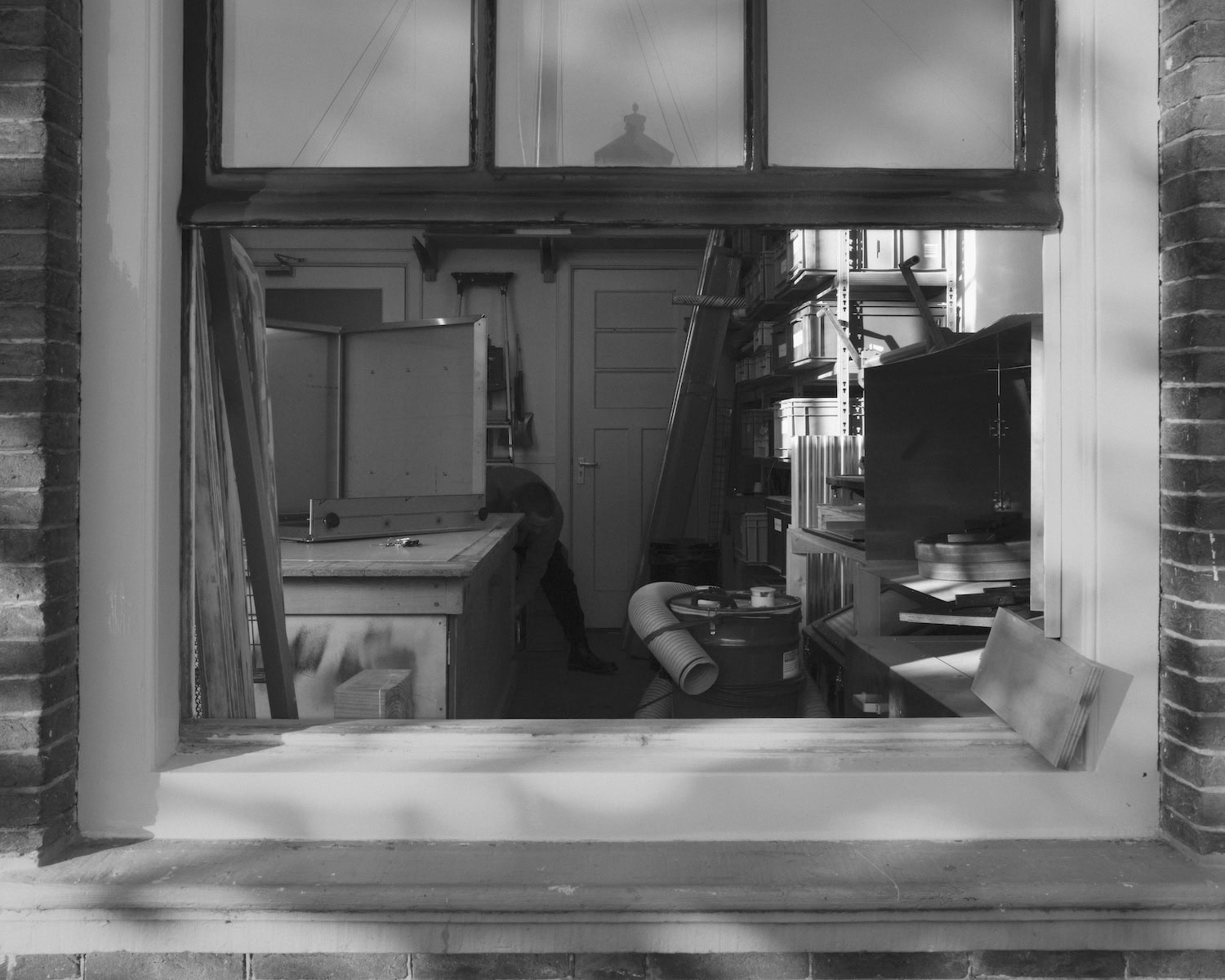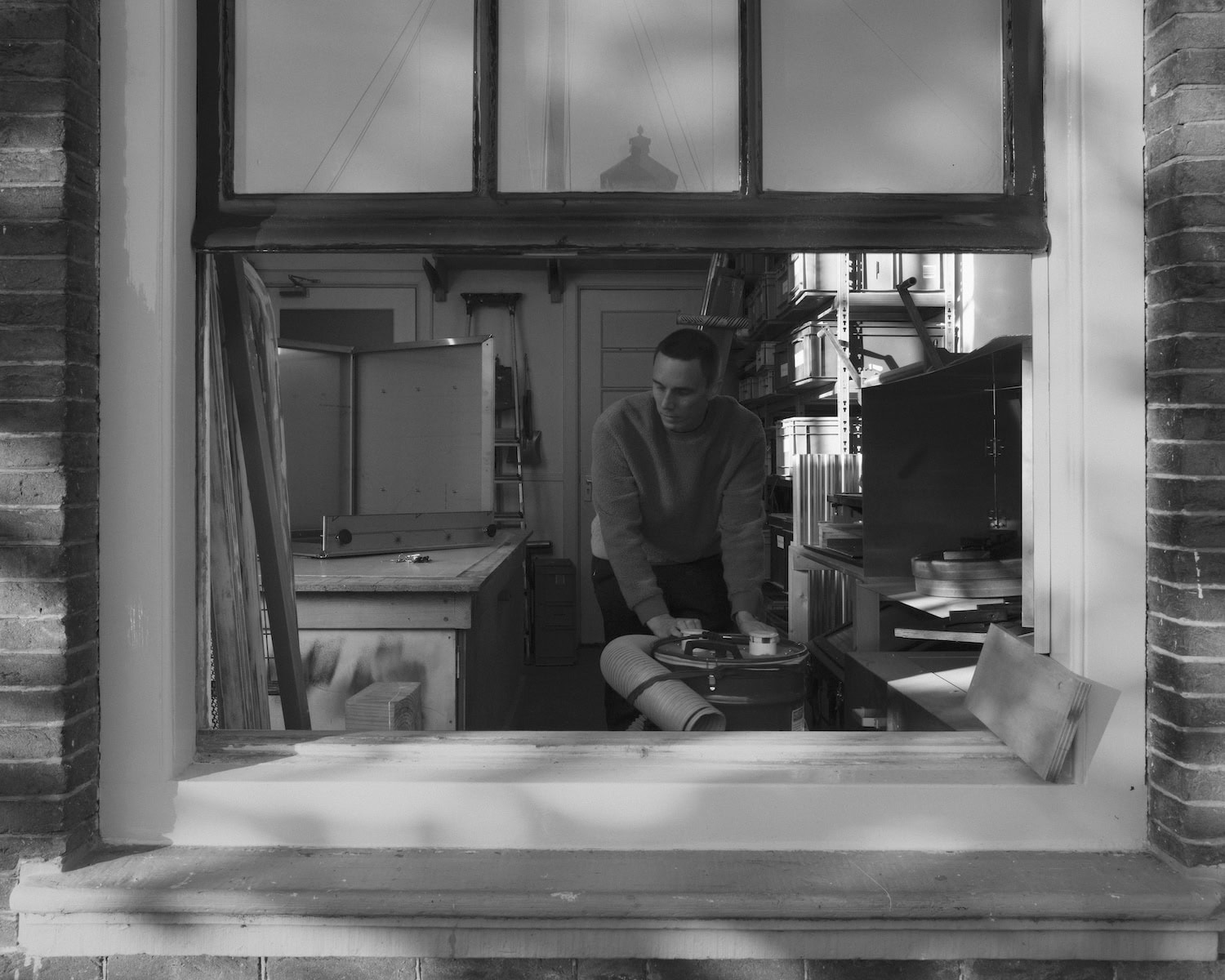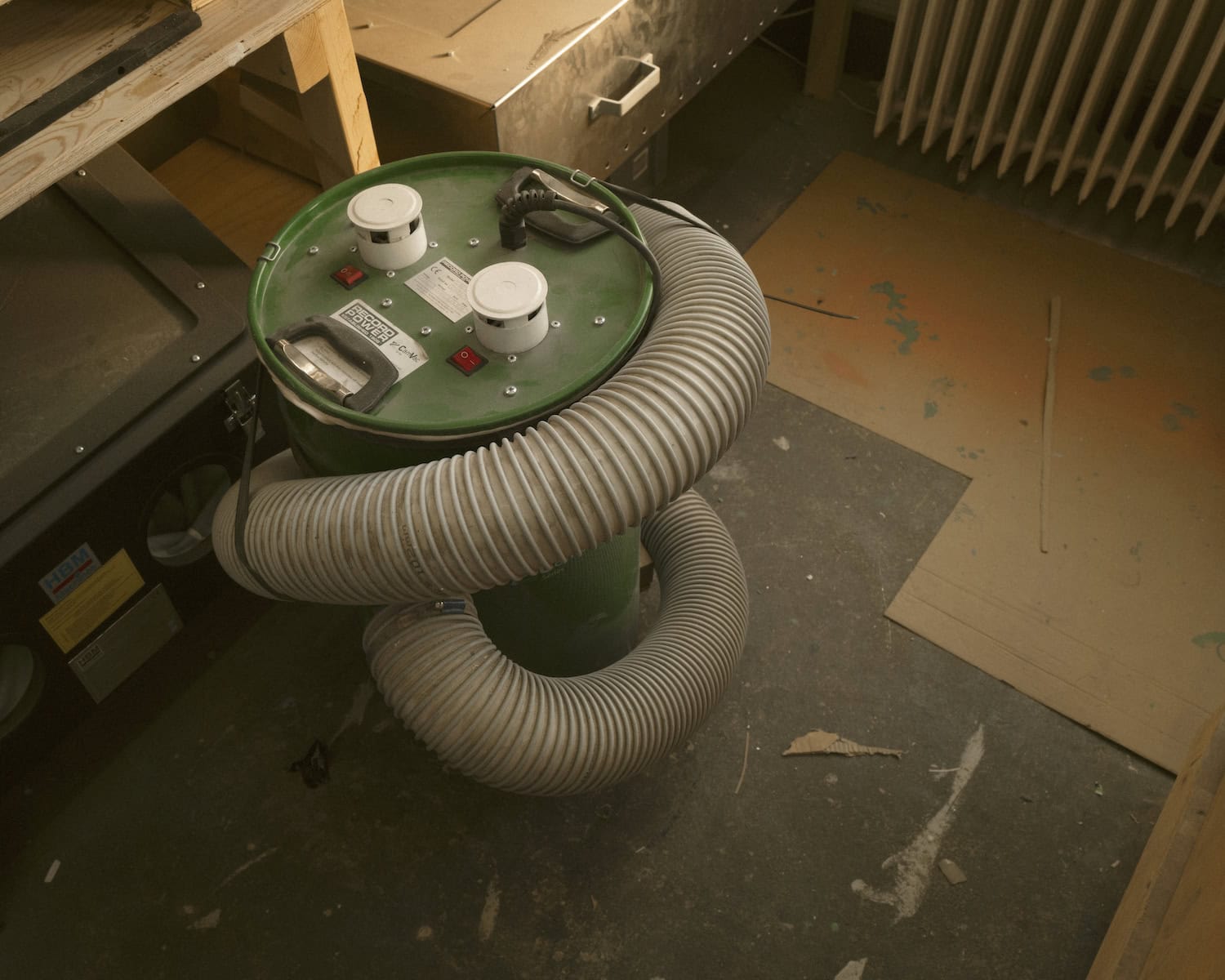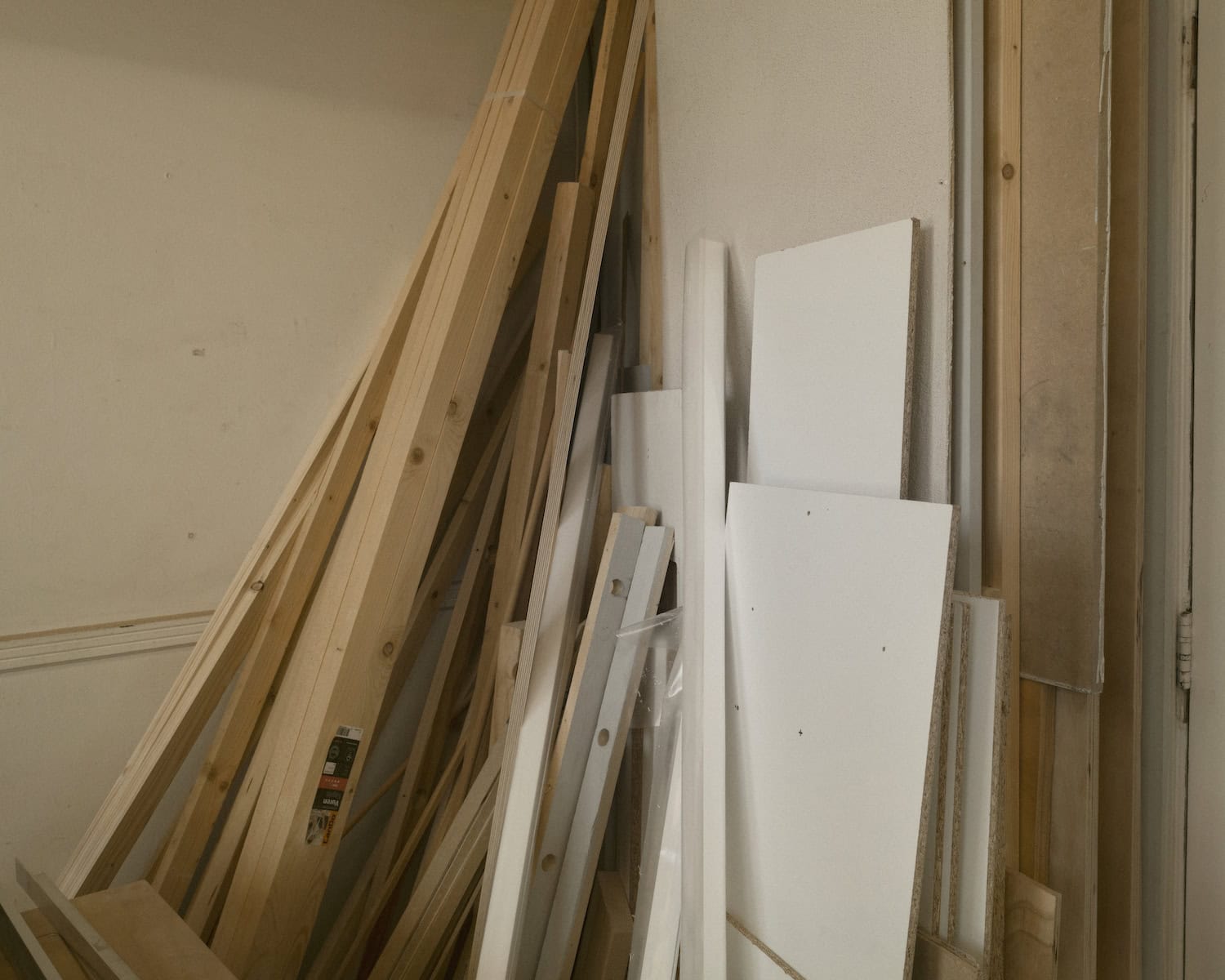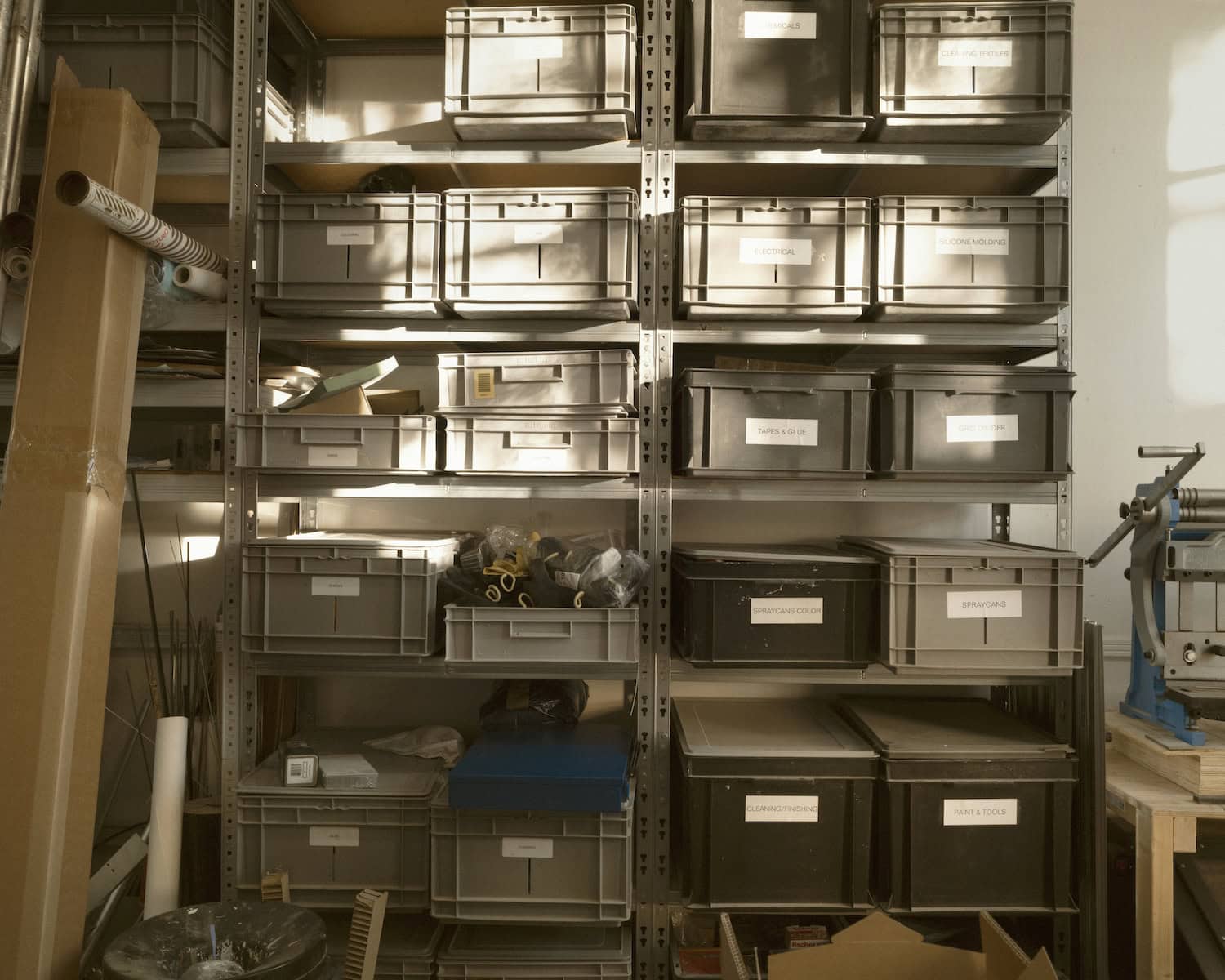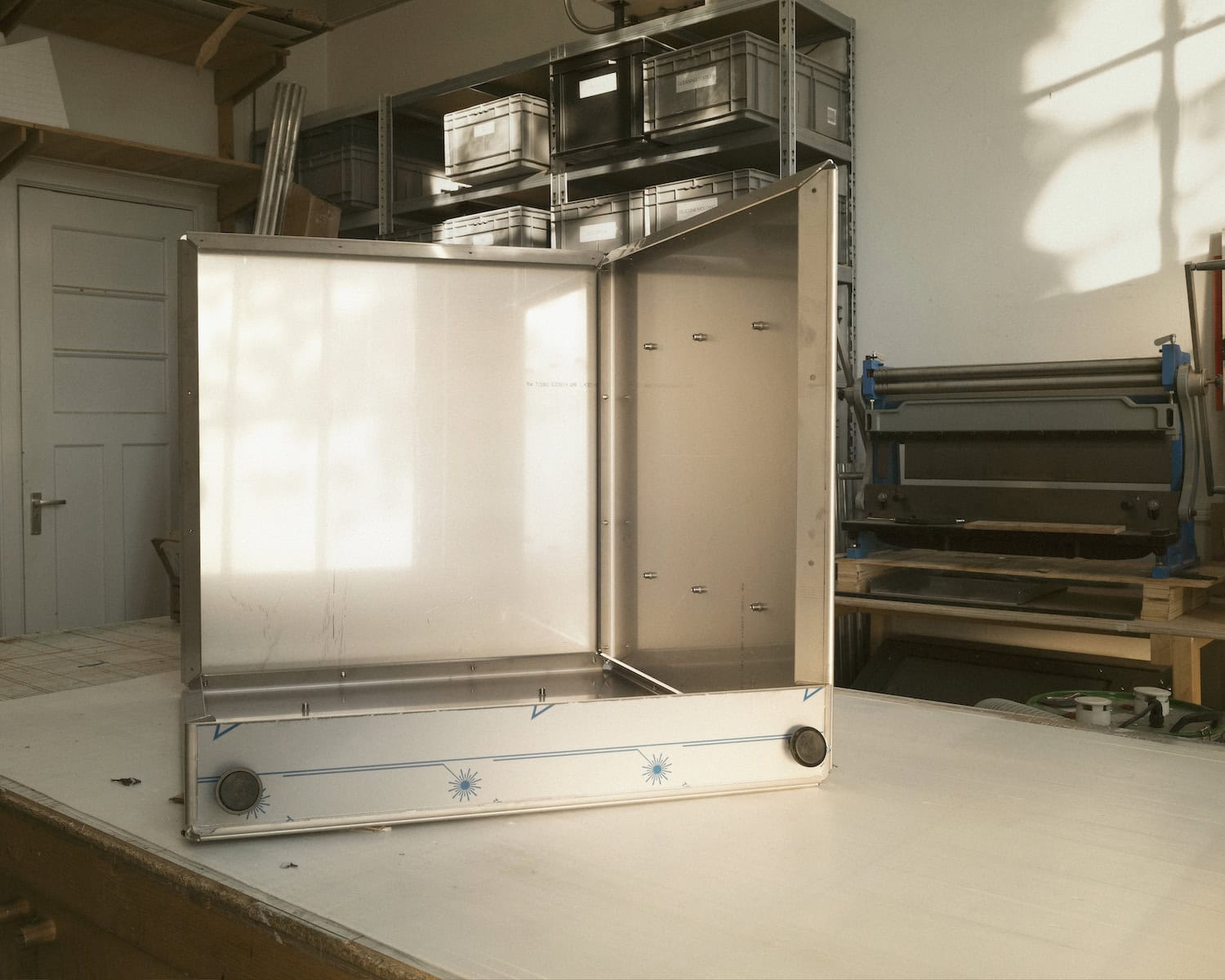“Make it Happen” represents the joint pay-off of the Municipality of Rotterdam and apart from the brand positioning for the city, “Rotterdam. Make It Happen.” highlights what the city and residents stand for: pushing boundaries. Rotterdam, NL is a city that bustles with energy, with a world port that attracts and connects. There, Phil Procter runs a design office working across the fields of furniture, lighting and spatial design, fixated on the balance between utility and expression. And there, he settled down for the future of his family. This editorial, documented by Simone Lorusso, unveils the relationship between Rotterdam and Phil Procter–a British designer that founded his studio in Rotterdam ten years ago. The interview has been written and curated by Filippo Fino. Phil has grown together with the city: his personal development over the last ten years is comparable with the growth of Rotterdam into a metropolis. Starting as a craftsman in England, Phil evolved his design vision by collaborating with designers like Sabine Marcelis and Wieki Somers.
FILIPPO FINO: Tell us more about your first approach to the city: Rotterdammers like to get things done, focus on results, and without making a fuss; did this influence you since your first experiences?
PHIL PROCTER: We came on a tour of the Netherlands as part of my university study and Rotterdam made a huge impression on me since that first visit. The freedom people were enjoying in the city was astounding to me, huge studios and affordable housing, city-wide arts and music festivals, and museums for every day of the week. At that time, anything seemed possible in Rotterdam. With just a short glimpse I could see that it was a city filled with possibilities and opportunities. So, after a short internship here and meeting my girlfriend, I did my own Brexit and relocated here to Rotterdam in 2012. Arriving as a typically indirect Brit, the bluntness of Rotterdammers was a shock to me. Over the years I’ve adjusted and have now adopted their clear and efficient ways. There is no reading between the lines here, people say what they mean, do what they want and just generally get on with it: I like that.
FF: You’ve been in Rotterdam for ten years now, it seems you found your dimension there. Is it really a city where the Make it Happen mentality can be seen and felt?
PP: Rotterdam is both a Harbour city and a city that lost its history during World War Two. This has made way for a unique attitude of hard work and courage. Obviously, the city has woven this characteristic into its marketing, but it does ring true. The mentality of the city is fearless, progressive, and extremely open to change. As a designer, I think this is the best possible atmosphere to surround yourself with.
FF: Meanwhile, you were present at the Dutch Design Week. You worked with two designers for an exhibition that explored themes of modularity, community and language. How did it go and how do you relate yourself to diversity and collaboration?
PP: During Dutch Design Week we presented a group show called “Hydra” with friends and fellow designers Tom Chung and Earnest Studio. The title of the show riffs off the idea of language, that as three separate design studios we still share a language of materials, aesthetics and manufacture. The idea of a multi-headed beast talking amongst itself. It was a very rewarding process to develop the show together and create a bunch of fully autonomous new work. We followed our personal interests to create new work that was not limited by the restraints of industrial production that we often work within. We contextualized our own furniture by inviting other artists, musicians, a writer, a film curator and a book store to contribute work to the show. They all departed from the show’s central themes, and it was a beautiful process to see what everyone came back with. More details about the show can be seen at www.hydras.info
FF: We heard about your upcoming collaboration with the Depot Boijmans, the world’s first publicly accessible art storage facility. Would you tell us more about this?
PP: Before any artworks or objects had moved in, I was invited to tour around the Depot building to discuss designing some spaces and furniture. It is an incredible building and unique in its function as a publicly accessible art storage. This gives a whole new dimension to the furniture and spaces that exist within. After many discussions, we started working with the Depot Boijmans in September and it became a dream project for me. The first part of the collaboration is an exhibition design called “Piranesi on paper” which shows the methods behind architect Giovanni Piranesi’s works. The Piranesi exhibition design and the objects within mark the first phase in the long-term collaboration. We will develop spaces such as the Depot Library and a permanent gallery for works on paper along with site-specific furniture like public seating, modular vitrines, art carts, display shelving, and temporary exhibitions. We’re just at the beginning, but over time we will have a body of practical research and an extensive collection of elements that study, express, and serve the demands of a unique building such as the Depot. In the spirit of the building, the conception, development, and realization of these elements will be openly communicated through interviews, prototypes, studio visits and publications. The Piranesi show opens start of December 2022 and the development of the furniture collection and spaces will follow throughout 2023.
FF: Rotterdam. Make it happen. Apparently, you are making it happen. Do you see yourself there for another ten years and how the city will differ from today?
PP: I’m quite sure I’ll be here in ten years. The first decade has flown by, and the city has been good to me and my partner–and now to our son! The three of us are very happy here and enjoy all Rotterdam has to offer. It has its downsides (mainly the wet grey winter!) but we’ve yet to find a city that offers so much in terms of community, opportunity and culture as Rotterdam does. That alternative may never come, in which case Rotterdam will always be home.
